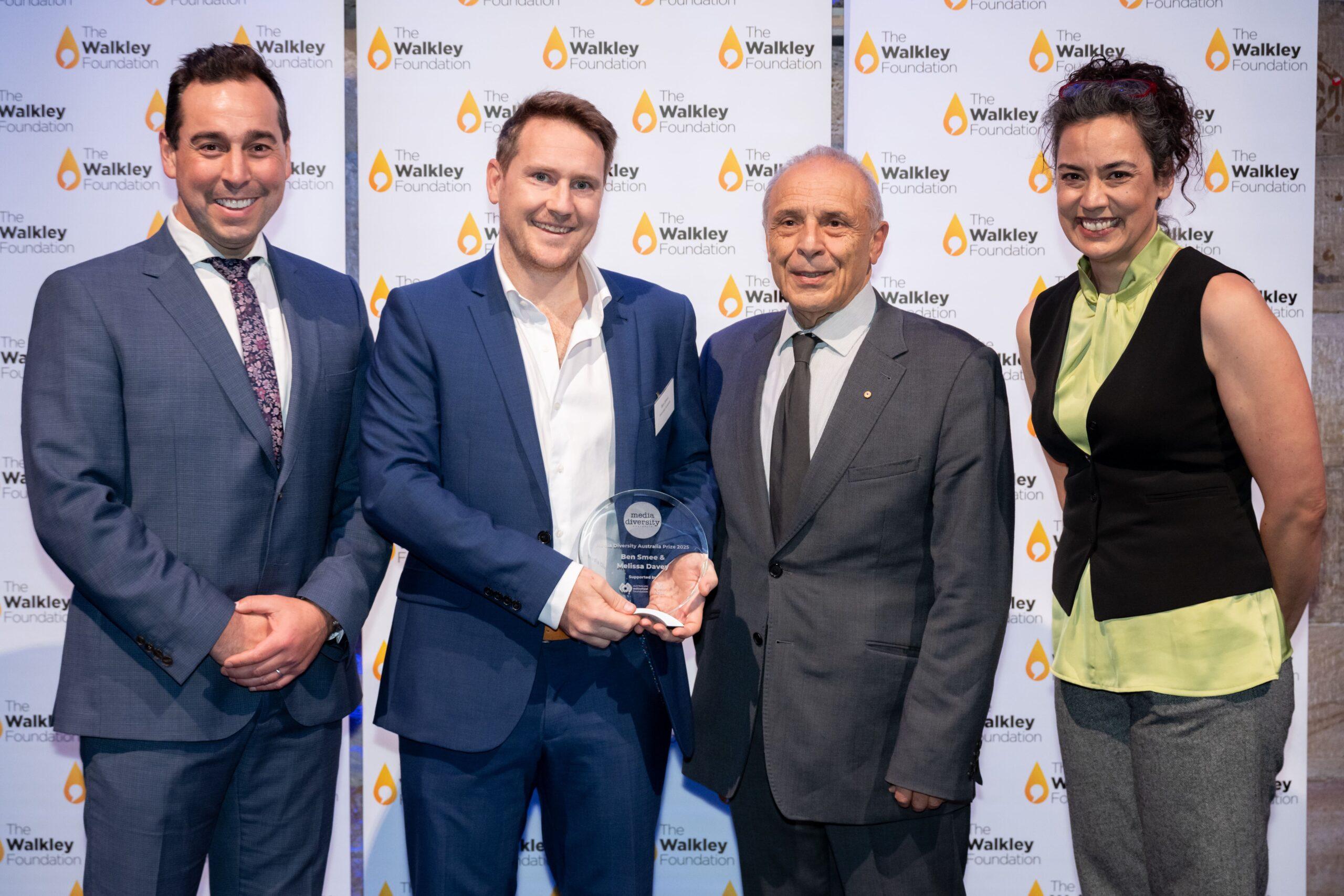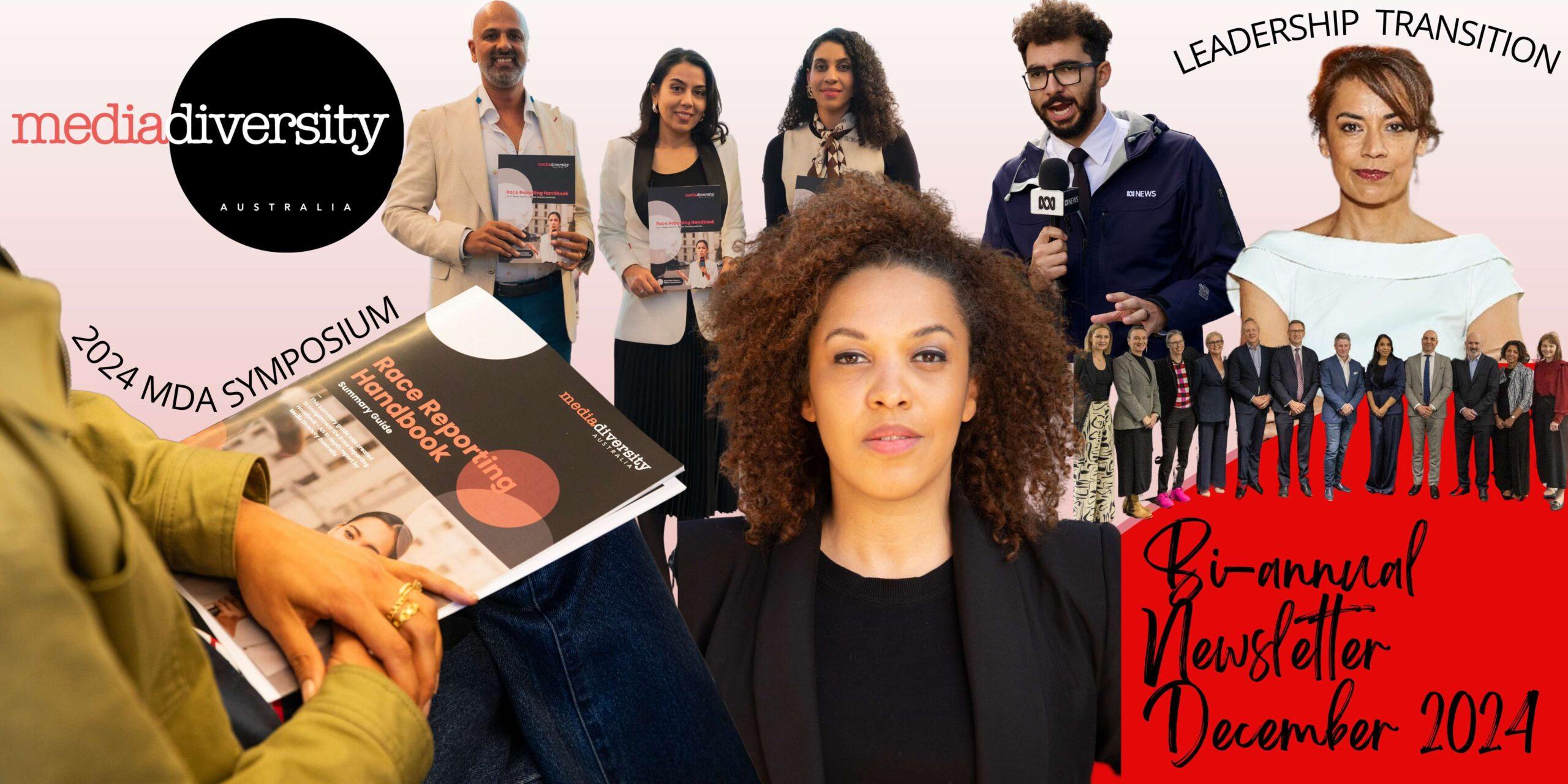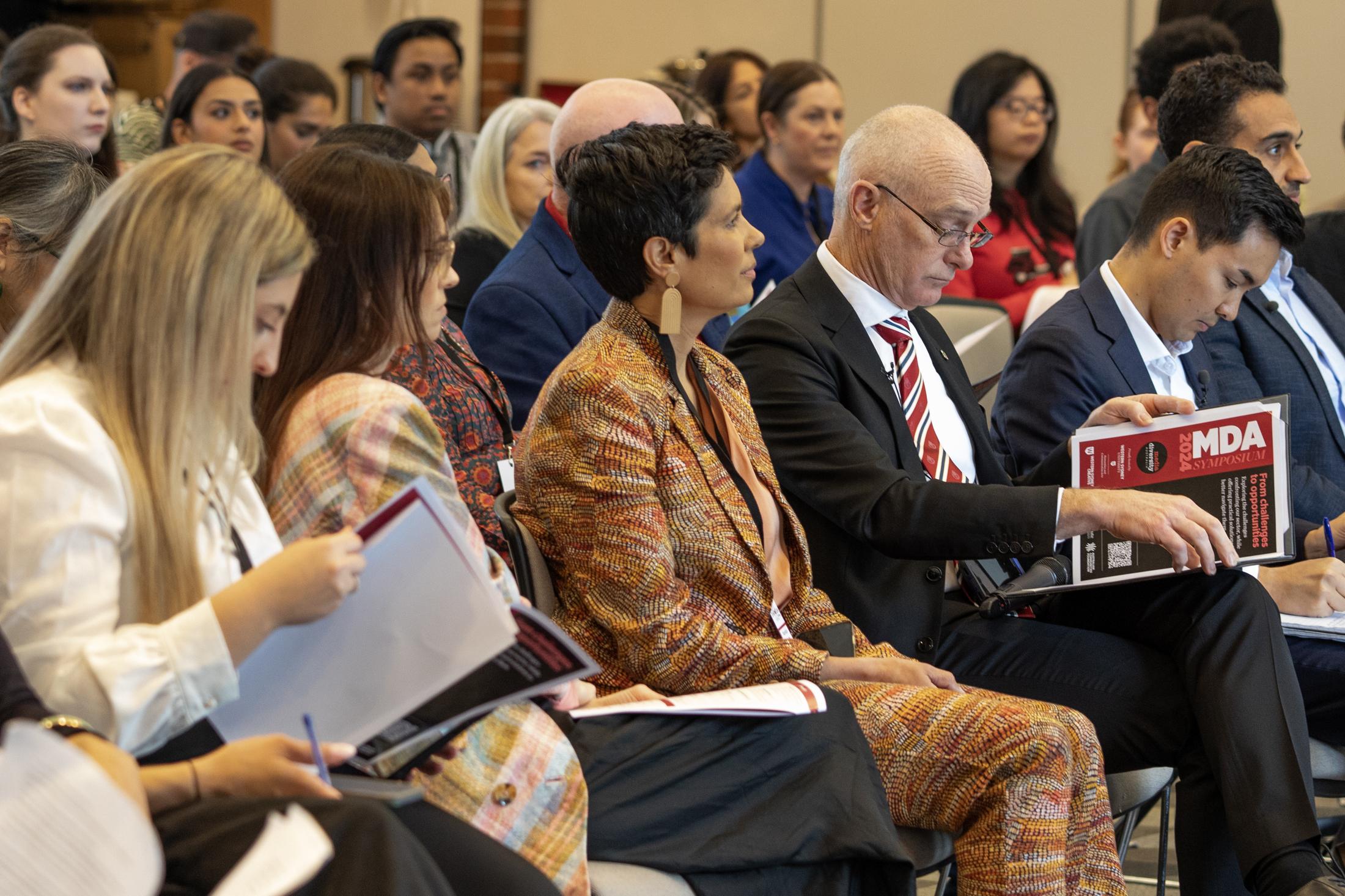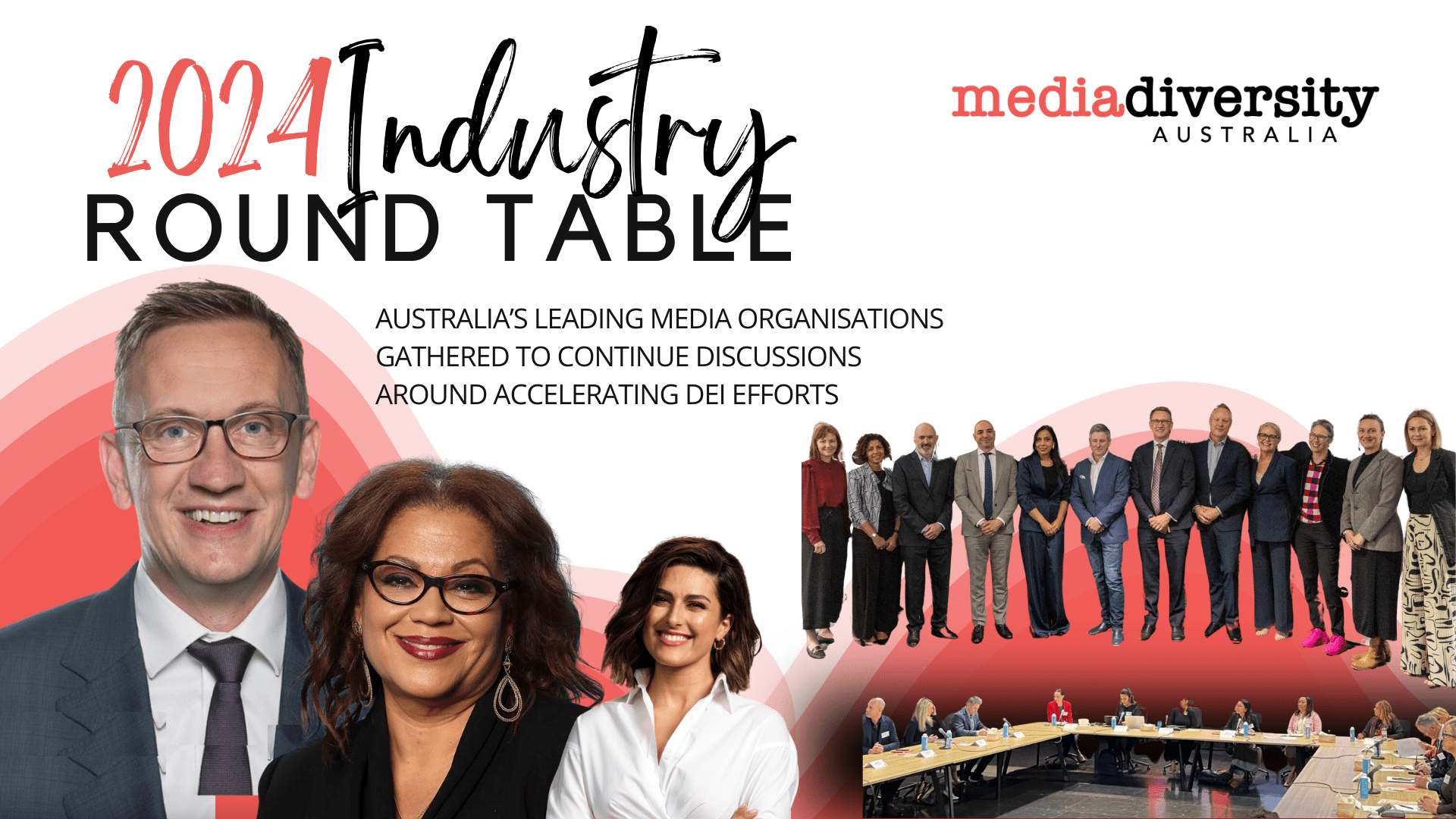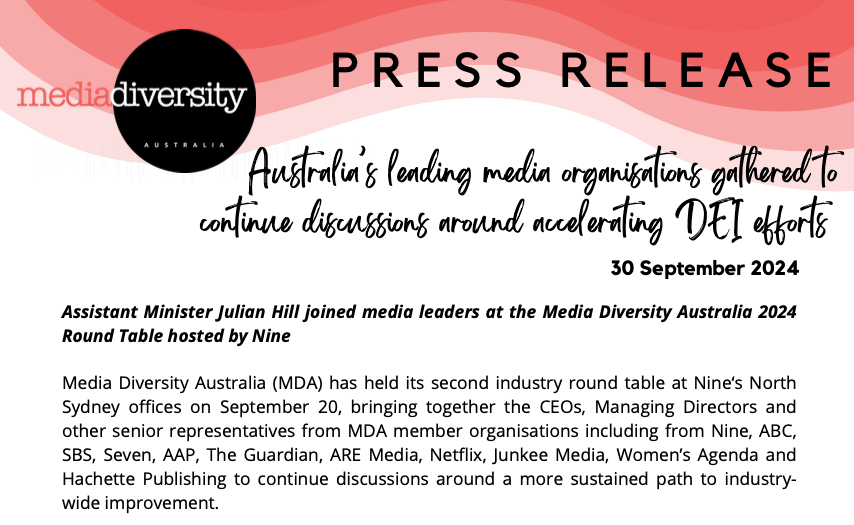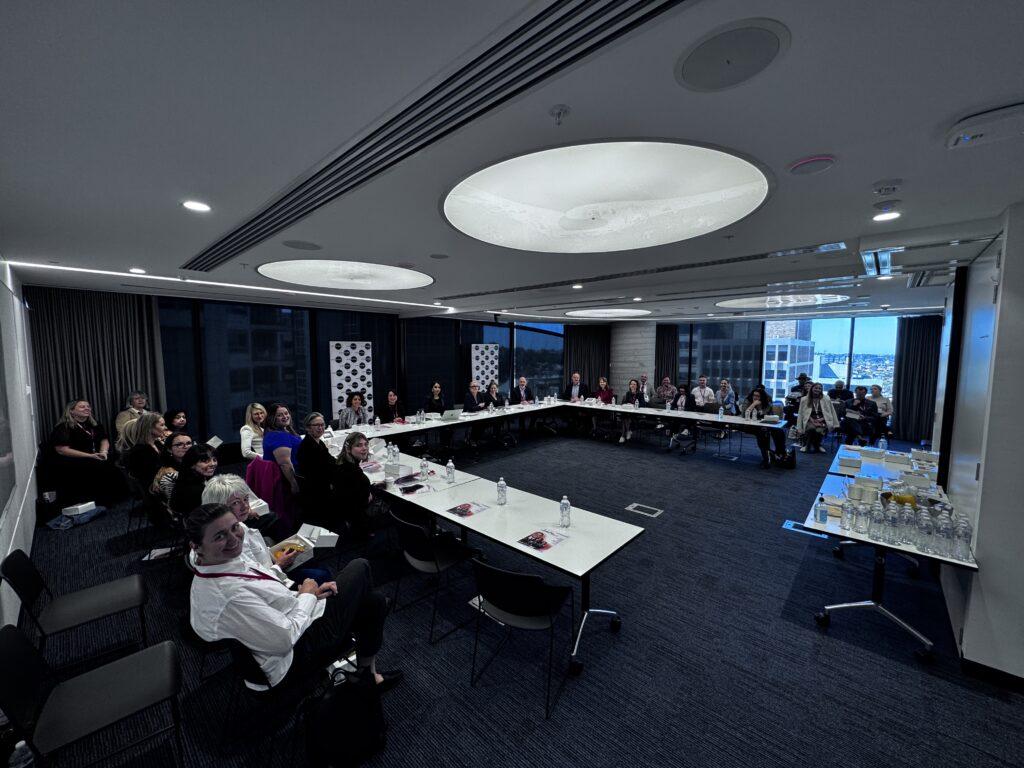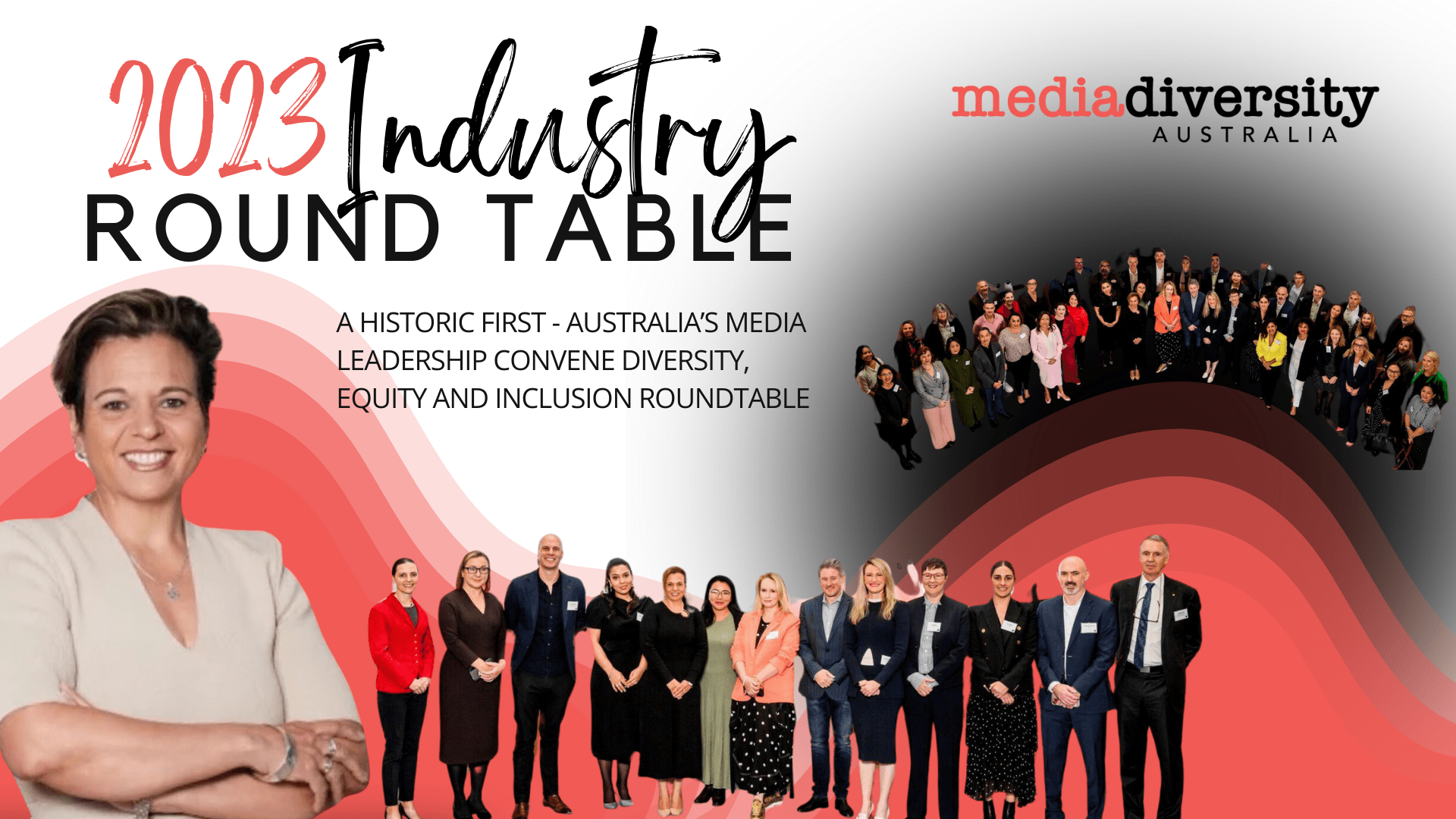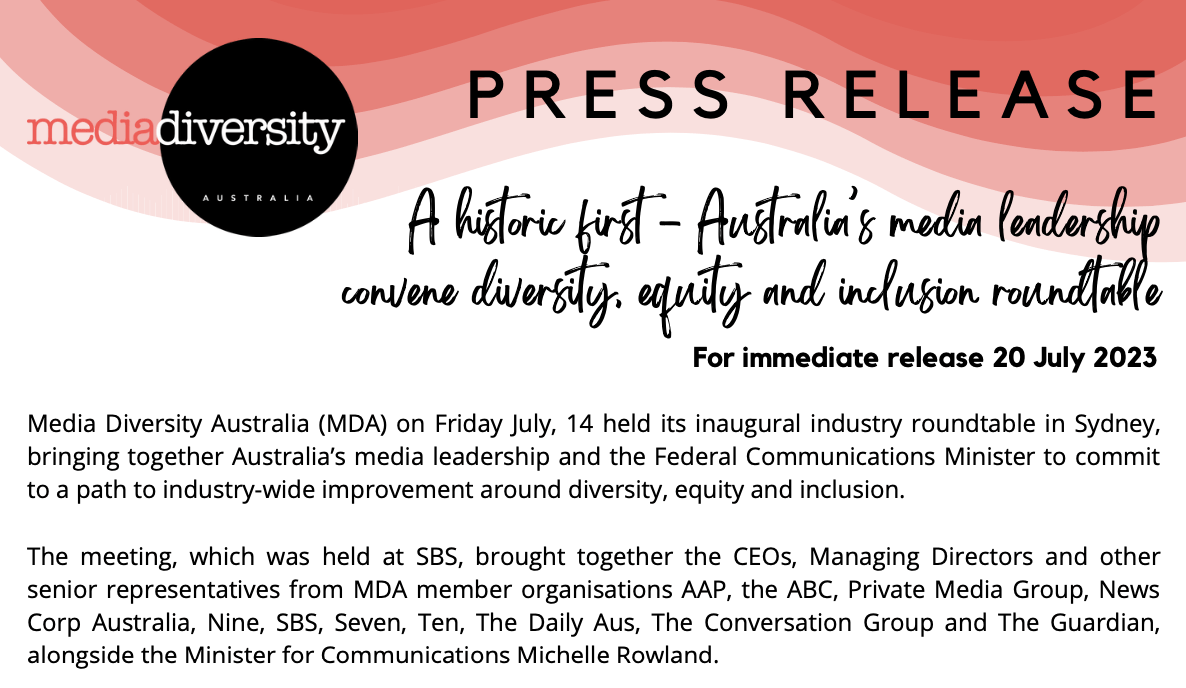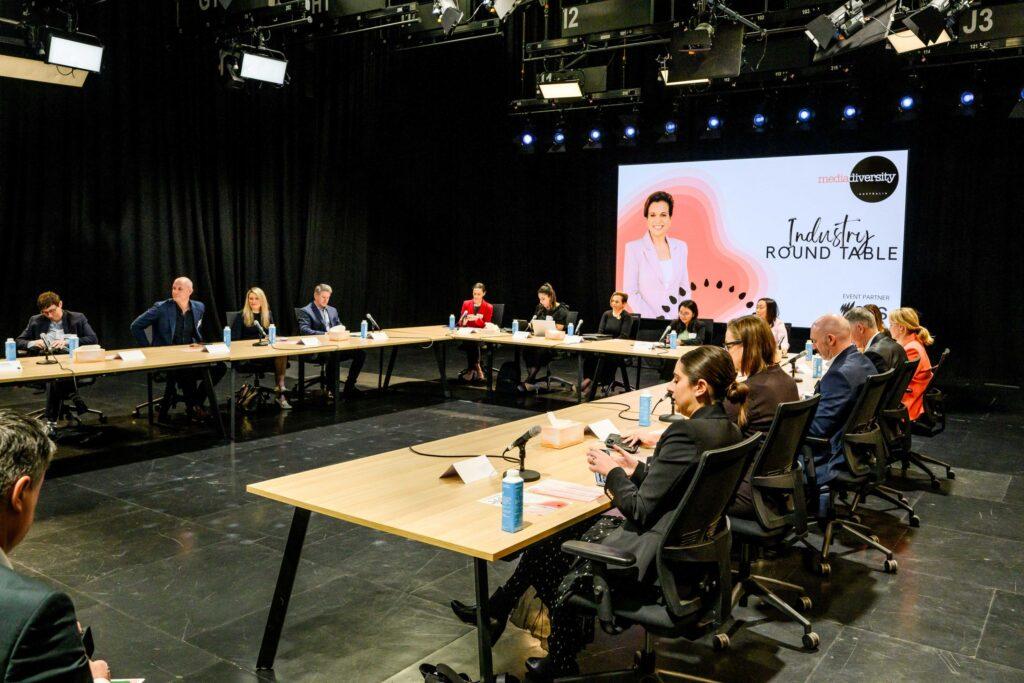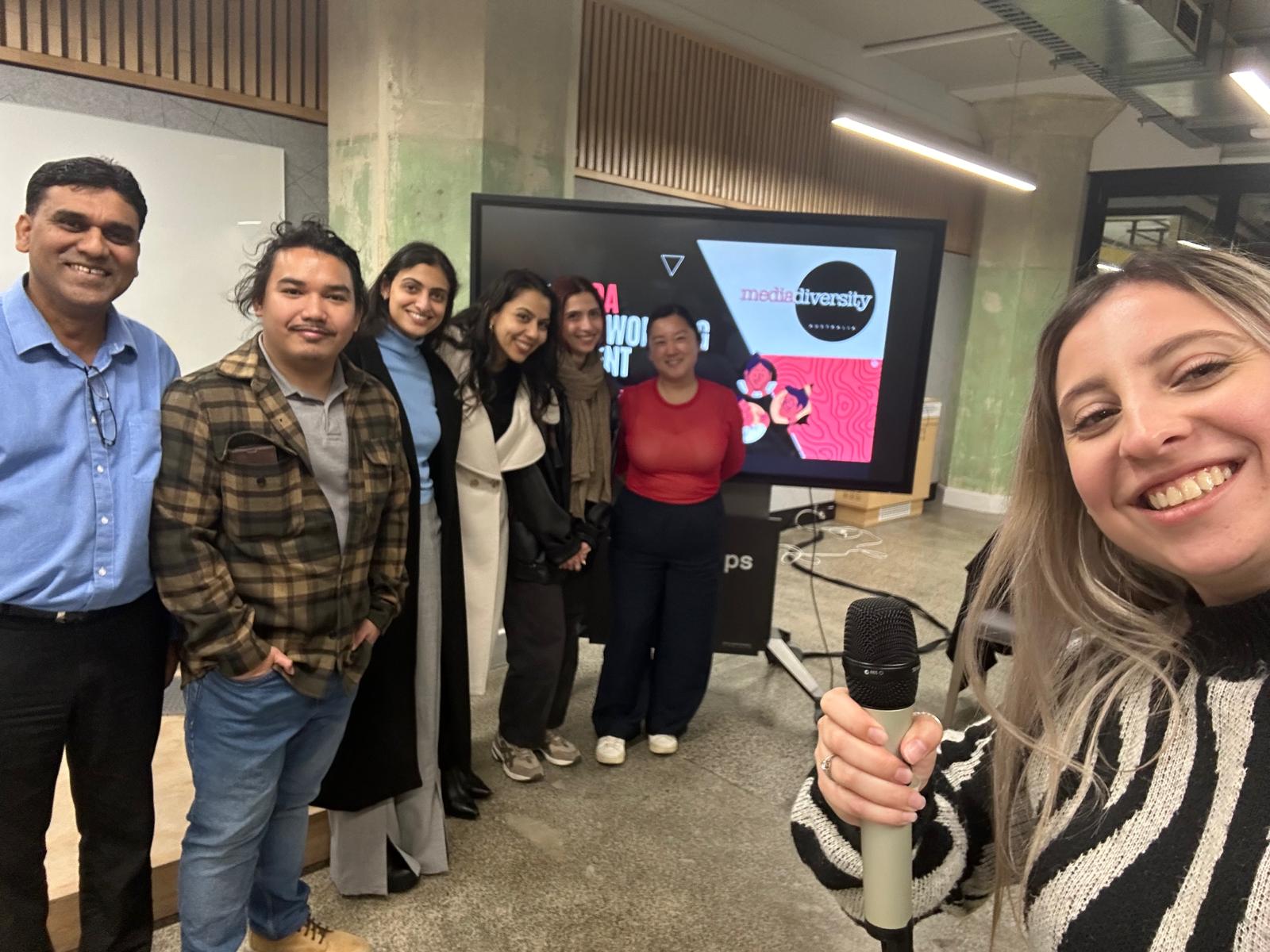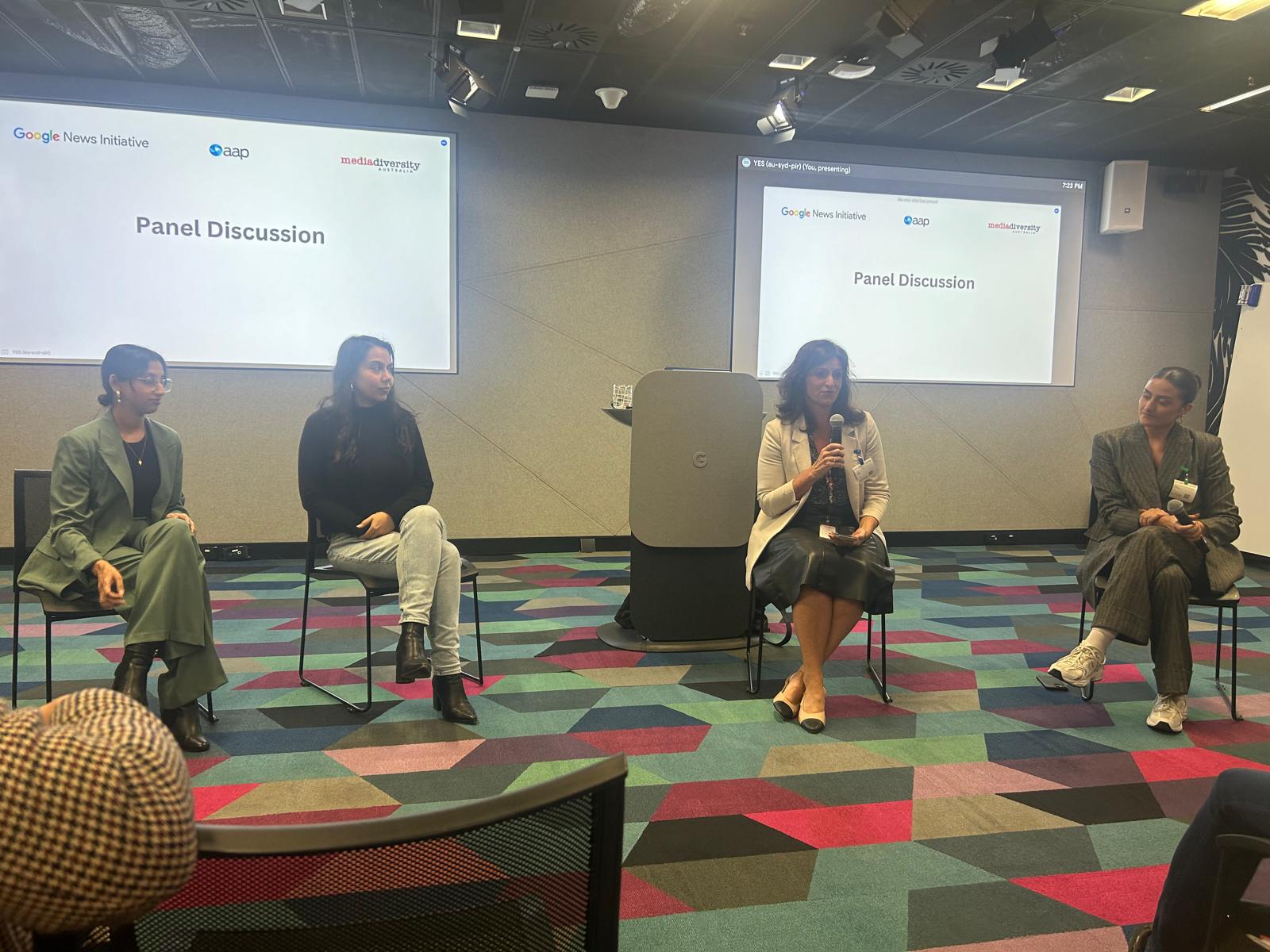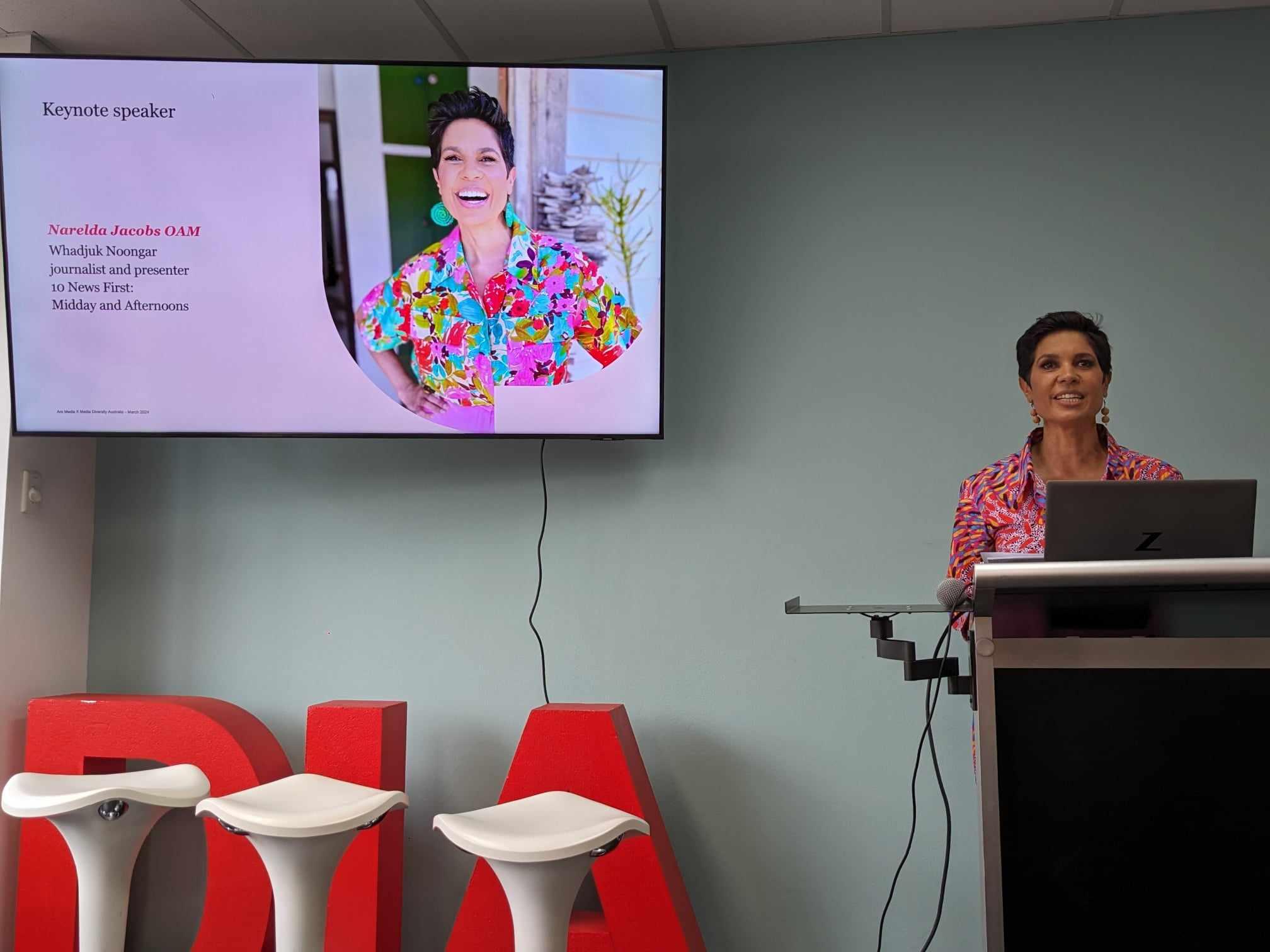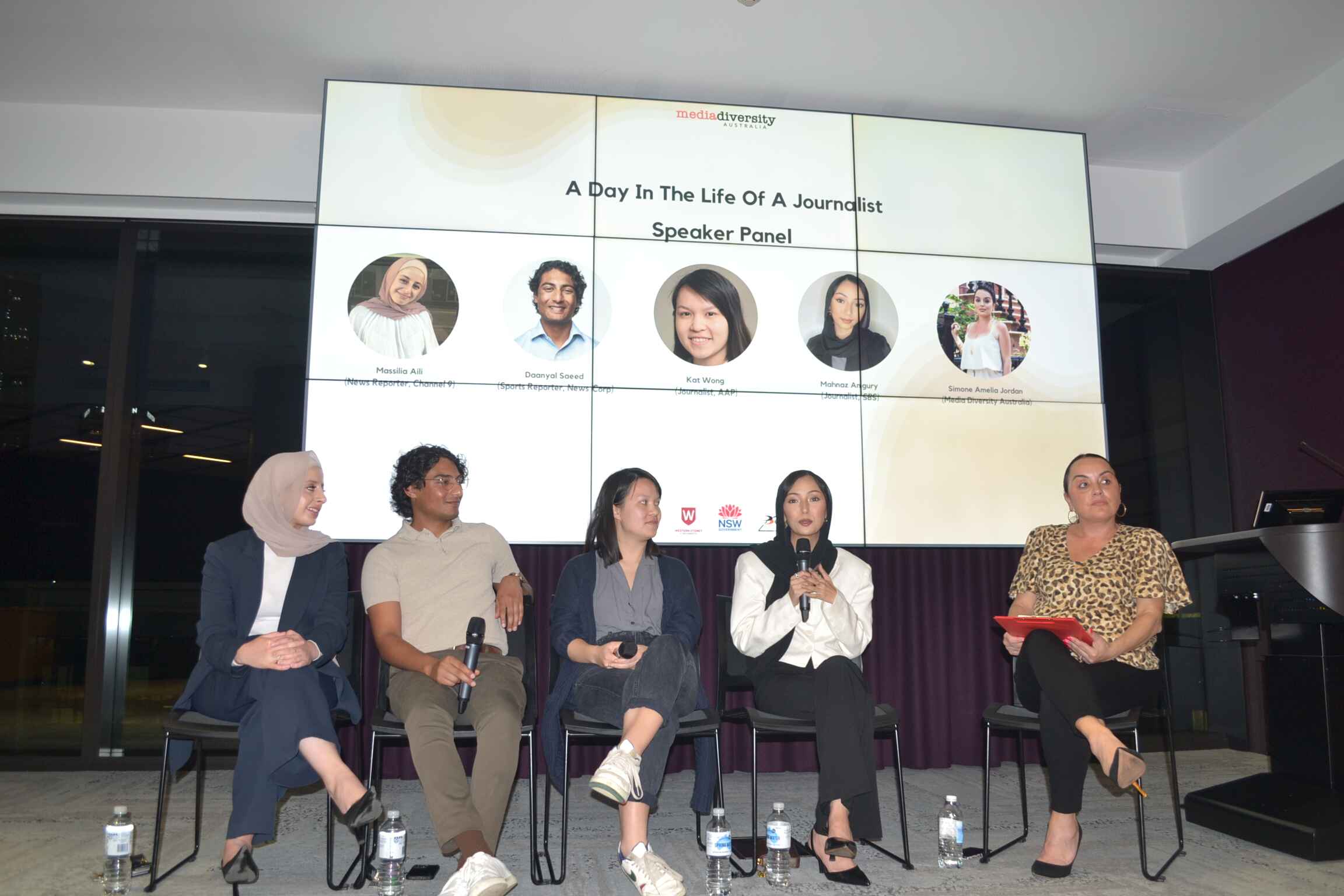Author: mediadiv
2024 MDA Symposium
2024 MDA Symposium
Media Diversity Australia 2024 Symposium – A Groundbreaking Event on Media, Diversity, and Inclusion
The Media Diversity Australia (MDA) 2024 Symposium, held on Thursday 3rd October in partnership with Western Sydney University, was a resounding success, bringing together 36 prominent speakers, including media professionals, academics, and advocates. The inaugural event featured a rich schedule of keynote speeches, panel discussions, and interactive workshops that addressed the challenges of inclusive media reporting while offering a sense of hope, solidarity, and empowerment to attendees.
Highlights included keynotes on reporting live on BLM by ABC journalist Elias Clure, reporting on the Referendum as an Indigenous journalist by NITV’s Rhanna Collins, as well as best practices in disability reporting by Disability Rights and Political Reporter Emma Myers from Canberra Community Radio Network. The event featured high profile speakers included Waleed Aly, Maria Thattil, Marc Fennell, Dai Le MP and Narelda Jacobs while an important spotlight was placed on younger talent including Kamin Gock, Sowaibah Hanifie, Anushri Sood, Achol Arok and Rashida Yosufzai.
The event also hosted workshops on mental health for journalists and brought together panels of executives and academics to discuss race reporting, ethical leadership and decision-making, all of which drew enthusiastic participation.
The Symposium’s impact was amplified by its focus on addressing the mixed emotions and systemic challenges that marginalised communities face in media representation.
In collaboration with Western Sydney University’s School of Humanities & Communication Arts, the Whitlam Institute, and the Australian Communities Foundation, the Symposium illuminated pathways to a more diverse and equitable media landscape. Special thanks to WSU’s Dr. Leo Robba, who moderated a key conversation on the challenges of regional newsrooms and played a pivotal role in bringing the vision of the event to life.
The Symposium, coinciding with the release of the ABC’s Racism review, also provided an important platform for a timely and nuanced executive panel discussion with the ABC’s News Director Justin Stevens, SBS’s News Director Mandi Wicks and AAP’s board director Shirley Chowdhary as they conclusively agreed that there is in fact, no conflict between diversity and impartiality. The Symposium succeeded in generating meaningful dialogue on the future of media diversity in Australia, providing a culturally safe platform to discuss the issues that have continued to plague the industry while helping the light the way forward for how to better tackle some of those challenges.
The day concluded with the launch of MDA’s Race Reporting Handbook following a powerful address by the Race Discrimination Commissioner Giri Sivaraman. The Handbook authored by Jenae Tien and Karina Hogan is a practical guide to help the sector that ultimately helps shape the health of democracy, how to better report on race relations and has the potential to transform how race is reported across Australian media.
The overwhelming feedback has confirmed that the Symposium left attendees feeling uplifted and empowered, ready to take concrete steps towards a more inclusive future for Australian media.
A massive thank you to WSU photographer Sally Tsoutas and WSU student photographer Abubakr Sajid for capturing these photos.
2024 Industry Round Table
2024 Industry Round Table
Australia’s leading media organisations gathered to continue discussions around accelerating DEI efforts
On September 20th 2024, Media Diversity Australia (MDA) hosted its second industry round table at Nine’s North Sydney offices. The event brought together over 100 media leaders, including CEOs and senior representatives from MDA member organisations including from Nine, ABC, SBS, Seven, AAP, The Guardian, ARE Media, Netflix, Junkee Media, Women’s Agenda and Hachette Publishing to continue discussions around a more sustained path to industry-wide improvement.
Assistant Minister for Citizenship and Multicultural Affairs, The Hon. Julian Hill MP, delivered the keynote address, emphasising the ongoing lack of diversity in Australian media and the need for urgent change.
The round table provided a platform for open discussions on key issues such as cultural safety, talent retention, and developing a diverse talent pipeline. A panel moderated by Nine’s Sarah Abo featured AFL’s DEI Executive Tanya Hosch, Nine’s Chief People Officer Vanessa Morley, and MDA CEO Mariam Veiszadeh, exploring the intersection of lived experience and impartiality in media reporting. Key commitments from MDA members included an annual round table to track progress, working group representation, and the adoption of uniform DEI metrics across organisations.
MDA CEO Mariam Veiszadeh highlighted the importance of collaboration, stating: “Achieving meaningful, lasting change requires collective effort. MDA is here to support both media organisations and diverse candidates in creating culturally safe, inclusive environments.”
The round table continues MDA’s mission to drive industry-wide change, ensuring Australia’s media landscape reflects its diverse population.
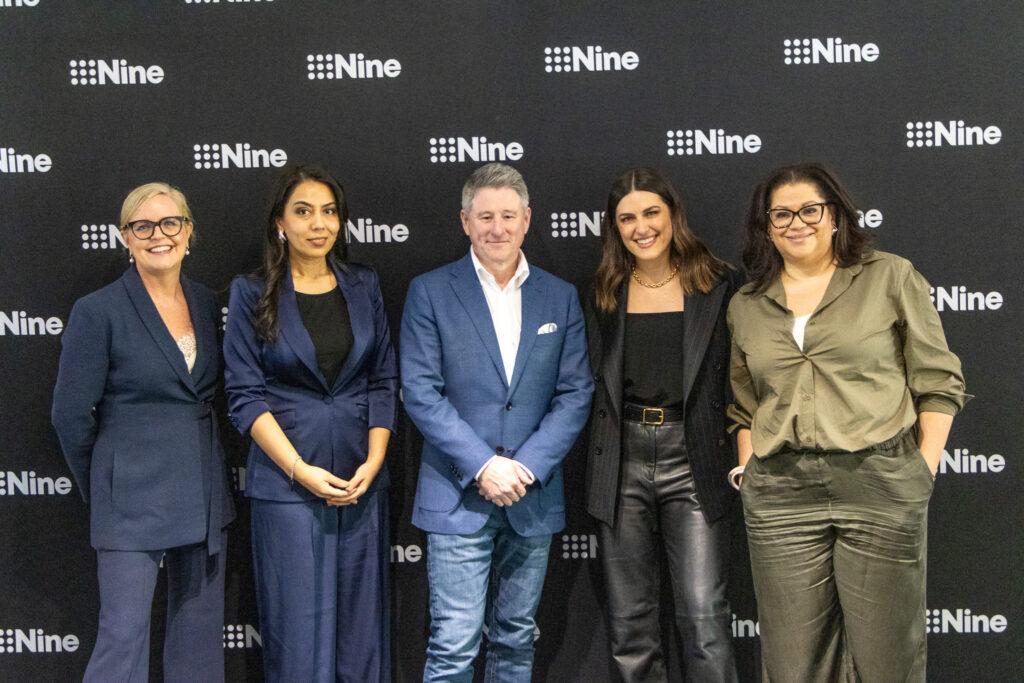
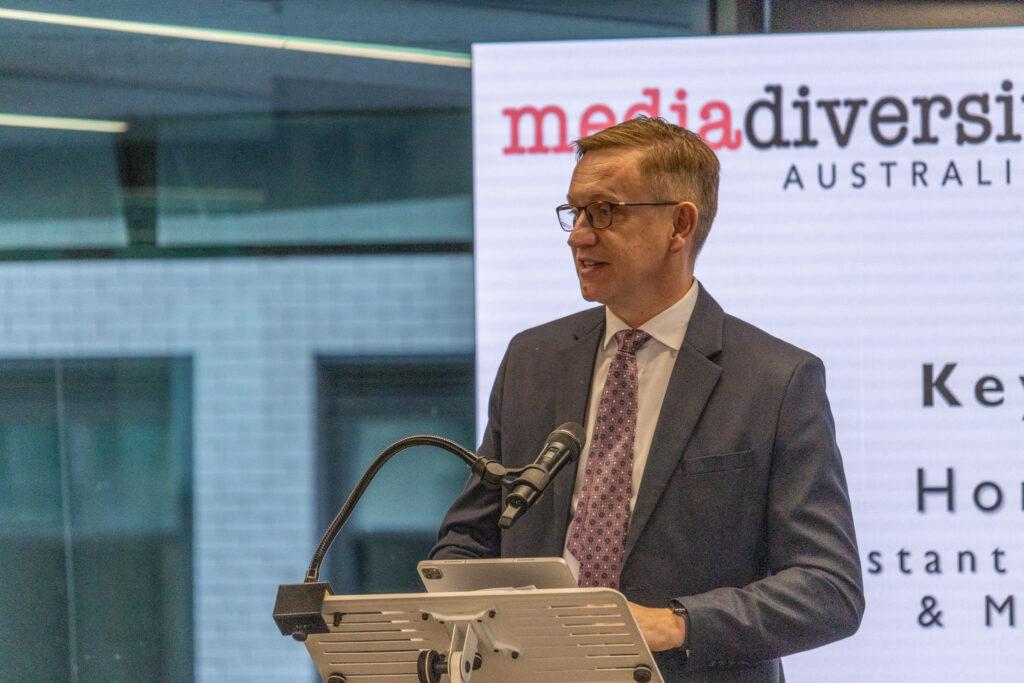
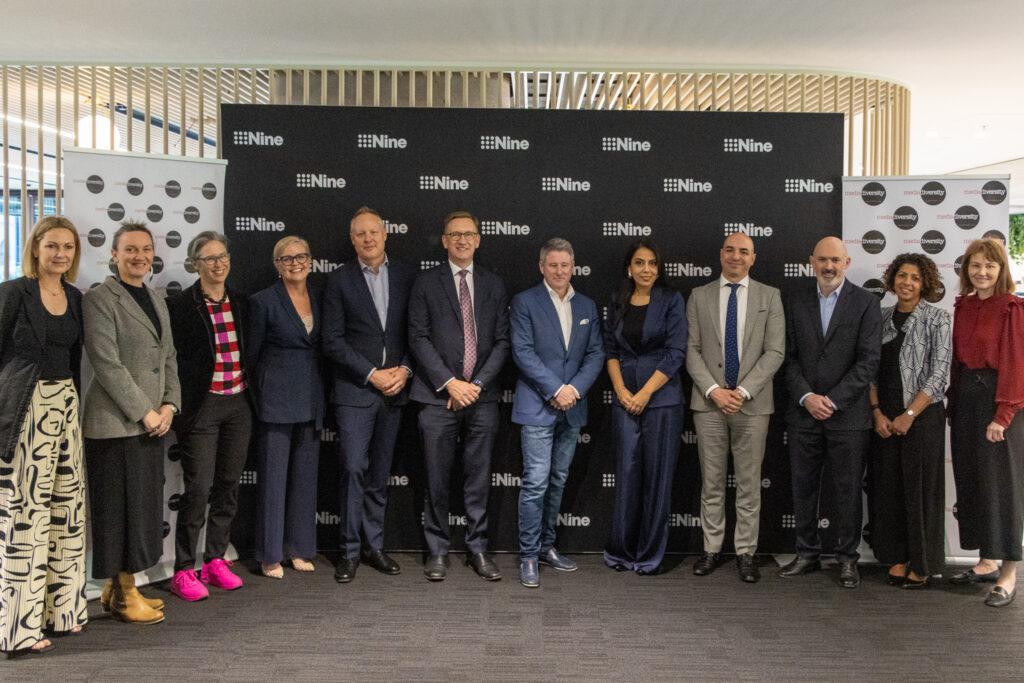
2023 Industry Round Table
2023 Industry Round Table
A historic first - Australia’s media leadership convene diversity, equity and inclusion roundtable
Media Diversity Australia (MDA) on Friday July, 14 held its inaugural industry roundtable in Sydney, bringing together Australia’s media leadership and the Federal Communications Minister to commit to a path to industry-wide improvement around diversity, equity and inclusion. The meeting, which was held at SBS, brought together the CEOs, Managing Directors and other senior representatives from MDA member organisations AAP, the ABC, Private Media Group, News Corp Australia, Nine, SBS, Seven, Ten, The Daily Aus, The Conversation Group and The Guardian, alongside the Minister for Communications Michelle Rowland.
Some notable attendees included Nine’s CEO Mike Sneesby, Ten’s Executive Vice President, Chief Content Officer & Head of Paramount, Beverley McGarvey, Seven’s Chief People and Culture Officer Lucinda Gemmell, ABC’s Chief Content Officer, Chris Oliver-Taylor, SBS’s News Director Mandi Wicks and News Corp Australia’s Group Executive, Corporate Affairs, Campbell Reid.
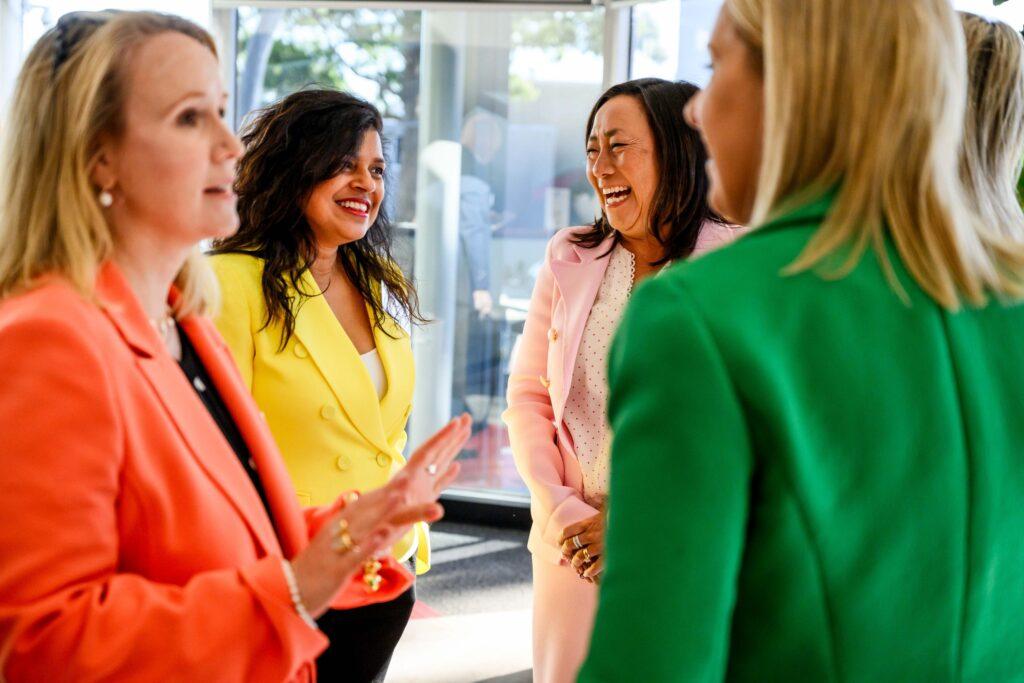
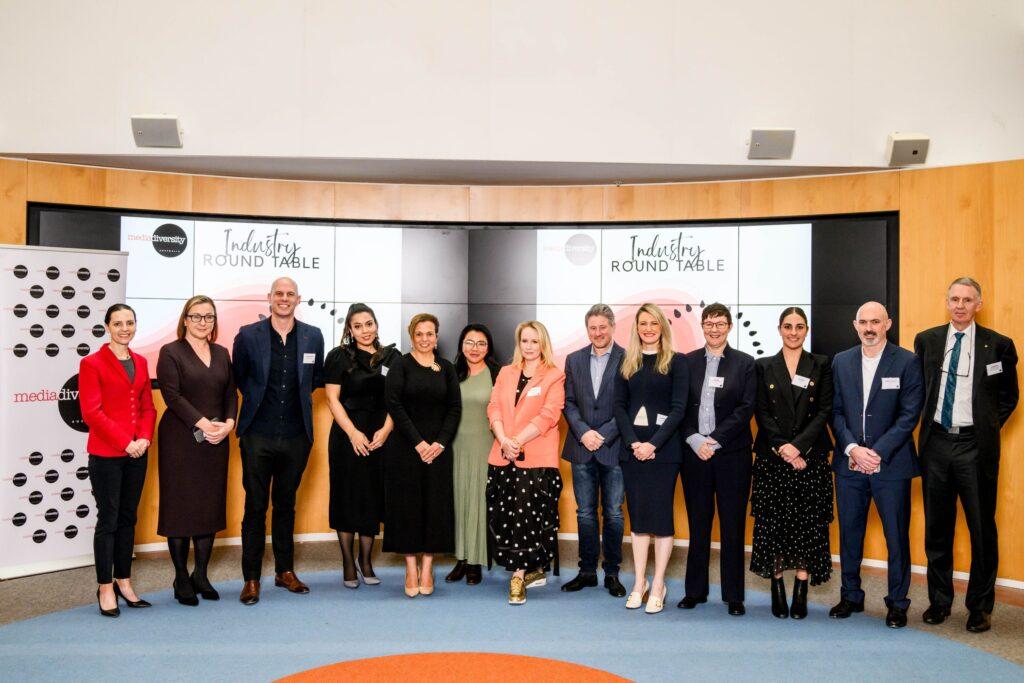
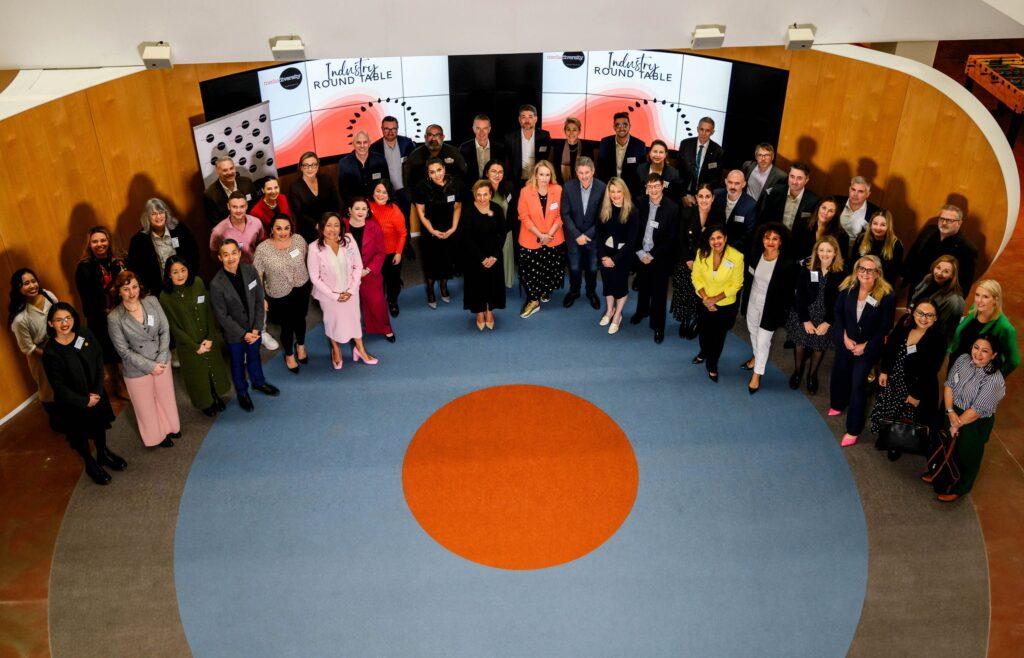
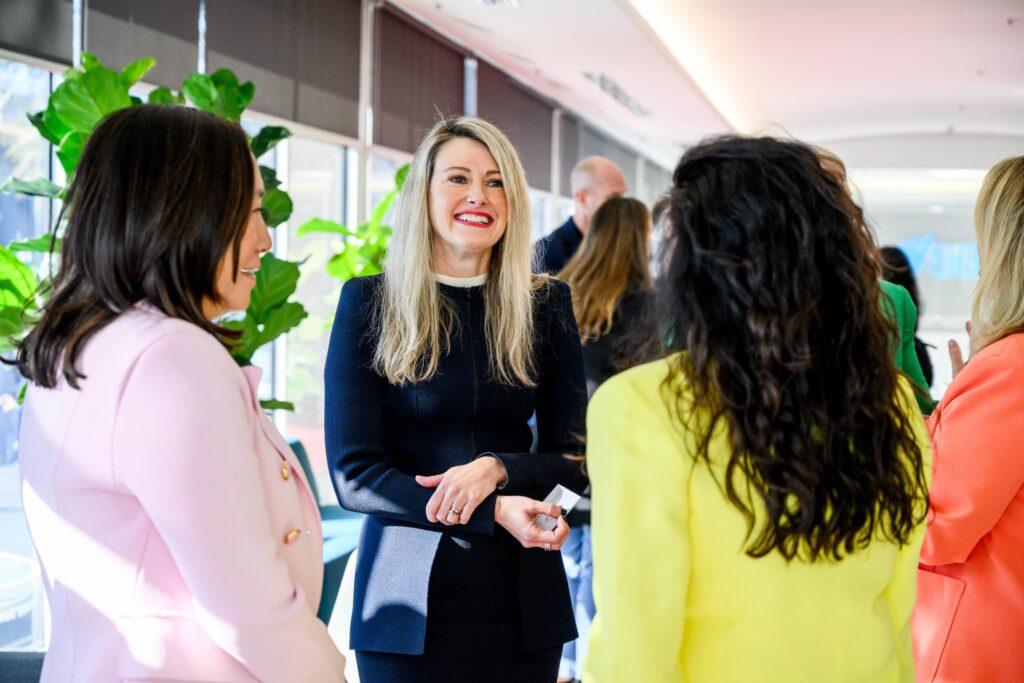
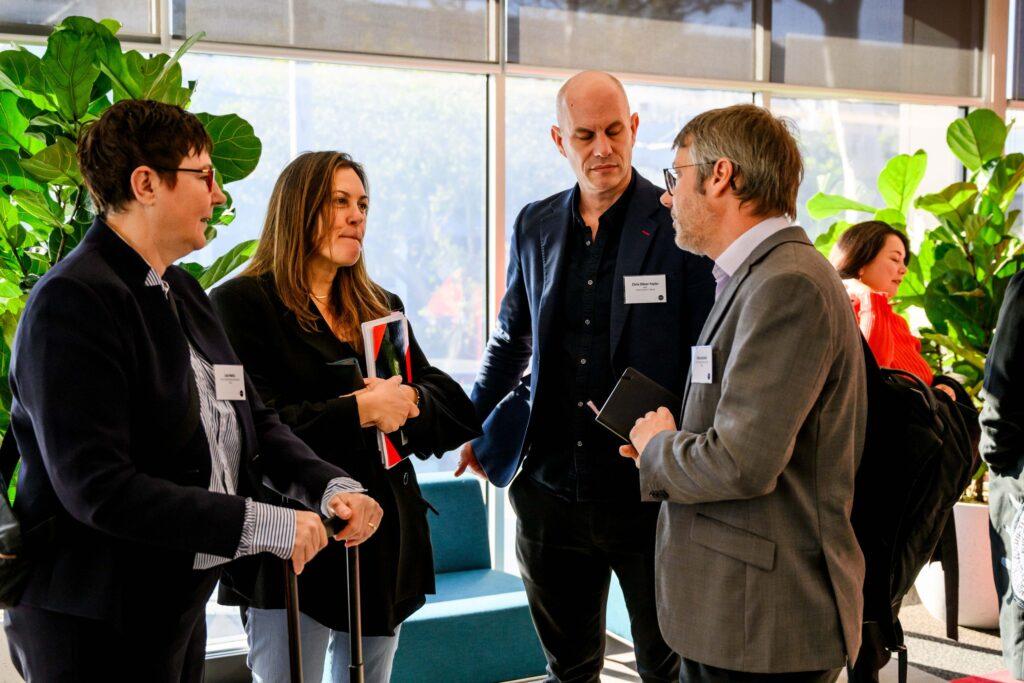
NSW Chapter Networking Event
NSW Chapter Networking Event
On Tuesday 30th July 2024, students, communications graduates and journalists were invited by MDA’s NSW Chapter to connect with each other, share ideas and build new relationships.
The event fostered an expansion of networks and supported the building of rapport between fellow professionals in the media and communications industry.
Diverse Voices, Digital Edge: Training and Networking for Journalists
Diverse Voices, Digital Edge: Training and Networking for Journalists
MDA was delighted to endorse and participate in the highly enlightening Diverse Voices, Digital Edge event hosted by AAP in partnership with Google.
Attendees had the invaluable opportunity to gain insights into the future of AI and fact checking from seasoned trainer Neil Varcoe.
The panel session featured compelling discussions led by esteemed journalists Nour Haydar and Alicia Vrajlal, along with MDA’s CEO Mariam Veiszadeh. The panellists emphasised the critical understanding that objectivity is an external process, not a natural state which can be eroded simply by virtue of one belonging to a minority group and having a diverse lived experience.
ARE MediaxMedia Diversity Australia: International Women’s Day
ARE MediaxMedia Diversity Australia: International Women’s Day
Media Diversity Australia had the fantastic opportunity to partner with our media member ARE Media and host an event celebrating, and cultivating important discussions around gender, inclusivity and safety in the workplace. The International Women’s Day event took place on Thursday 14th March at ARE Media’s head offices in Sydney. This year’s theme for International Women’s Day was Count Her In: Invest in Women. Accelerate Progress.
Between the incredible keynote speaker, Narelda Jacobs, the panel that featured ARE Media’s Veronique Maury, Dora Papas and Jayde Malifa and the conversations that played out in the aftermath, the heartbreaking and inspiring stories we heard from women in the industry assured us of just how necessary our mission is. The event cultivated discussions around the barriers women have overcome in media but also the barriers women still face. The main takeway from the event highlighted that no woman is free until ALL women are free.
Media Pathways Program: WSU Seminar Series
Media Pathways Program: WSU Seminar Series
In September 2023, four evening sessions were held at WSU’s Parramatta City Campus, showcasing an impressive lineup of renowned journalists, presenters, and media professionals. The sessions aimed to prepare, inspire and provide invaluable insights and comprehensive support to culturally and linguistically diverse students, graduates, and job seekers in communications.
Students heard from and engaged with accomplished speakers and journalists such as Nine’s Massilia Ali, Crikey’s Daanyal Saeed, ABC’s Angelique Lu, Channel 10’s and many more.
The program equipped participants, especially those with refugee and asylum-seeker backgrounds, with the skills, confidence, connections, and experience necessary to thrive in the Australian media industry and pursue employment opportunities.
After completing the seminar series, students Georgina Jelovic, Jessica Cham, Jostina Basta and Sumaiya Chowdhure completed internships at Mamamia, News Corp Australia, The Sydney Morning Herald and ARE Media respectively.

